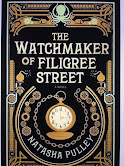Time to Write
For those of us who write, whether because we have to (for work, school, or other similar commitments) or because we HAVE to (because we can’t NOT write) there are always obstacles to overcome. The biggest one facing most of us is finding time to write.
I spent a lot of time lamenting the lack of time to write. It’s not uncommon. Writers have all the time they’d like to devote to their work. It’s an awful truth that most of us have to hold other jobs and not actually live off the work about which we are most passionate. To that end, full time work, part time work, a combination of the two along with the obligations of everyday life (shopping, cooking, cleaning, dry cleaning, picking up kids at school or soccer or dance, getting the car inspected) will often keep a writer too busy to have any sort of time to write.
There are a lot of ways to deal with this. Some prefer writing retreats, which are a great way to go if you have the money and the can take that much time off. A writing retreat is a chance to get away, maybe somewhere secluded or isolated, and concentrate on your writing. It’s like a working vacation. The pretty little isolated cabins in the middle of nowhere are supposed to give you a pleasant place to stay but with a minimum of distractions. I haven’t done a real writing retreat. I don’t have the money, and I also don’t like the idea of traveling someplace and not being able to see the sights. If I’m going to spend a lot of money to go someplace I’m going to want to see some of it while I’m there.
So what options are there if you’re poor from both a money standpoint and a vacation time standpoint?
A writing retreat really only has to be a distraction free environment. Turn off your phones. Stop checking Facebook and Twitter and Instagram. There are apps designed for writers to lock you out of social media for a set period of time so you won’t be able to sabotage your work by getting sucked into the minutiae of the internet.
It’s a rabbit hole I fall into myself. I start out doing research and the next thing I know, I’m stuck in name meanings (so I can pick a name that suits my characters), clothing design (so I can describe what my characters are wearing), the meanings of colors, of flowers, of zodiac signs and before I know if I’ve wasted hours not writing a word.
Set yourself up with some of those apps. Turn off your phone. Claim some time to concentrate on your writing.
If you have friends who are writers, talk to them about forming a group—not necessarily to write together, but to go to each other for advice, encouragement, and goading each other to stay on task.
Try remembering that it’s not important to wait until you have a lot of time. I developed a habit of writing anytime I could. Arriving at work even a few minutes early was enough for me to pull out a notebook and jot something down.
Carry a notebook or two with you wherever you go and jot down ideas. Use a digital recorder, app or voice recorder or whatever technological thing you have to record your thoughts if you really can’t write them down. Keep a notebook by your bed in case you wake up with an idea you just don’t want to lose. Don’t let lack of time be the reason you don’t try to work on your pet project.
If you don’t have a pet project, write anything. Write a description of what you see out of the train window as you head to your home or office. Write a scene based on something you overheard. Use writing prompts—there are some wonderful books and websites or you can just try using a favorite movie quote or a favorite song lyric as inspiration. You can pick a random word from the dictionary and use that as a prompt.
The more you write the better your writing will be. Round Robins are a fun activity you can do with any number of writers from just two to a dozen or more. Each person writes a bit and sends the story on to the next writer. You can have rules about word count or structure or have one single word, phrase, event that must be worked into your pages and working together will make the story run in directions you might not have considered if you worked alone.
Remember, you don’t have to be published to consider yourself a writer. You just have to write.






Comments
Post a Comment